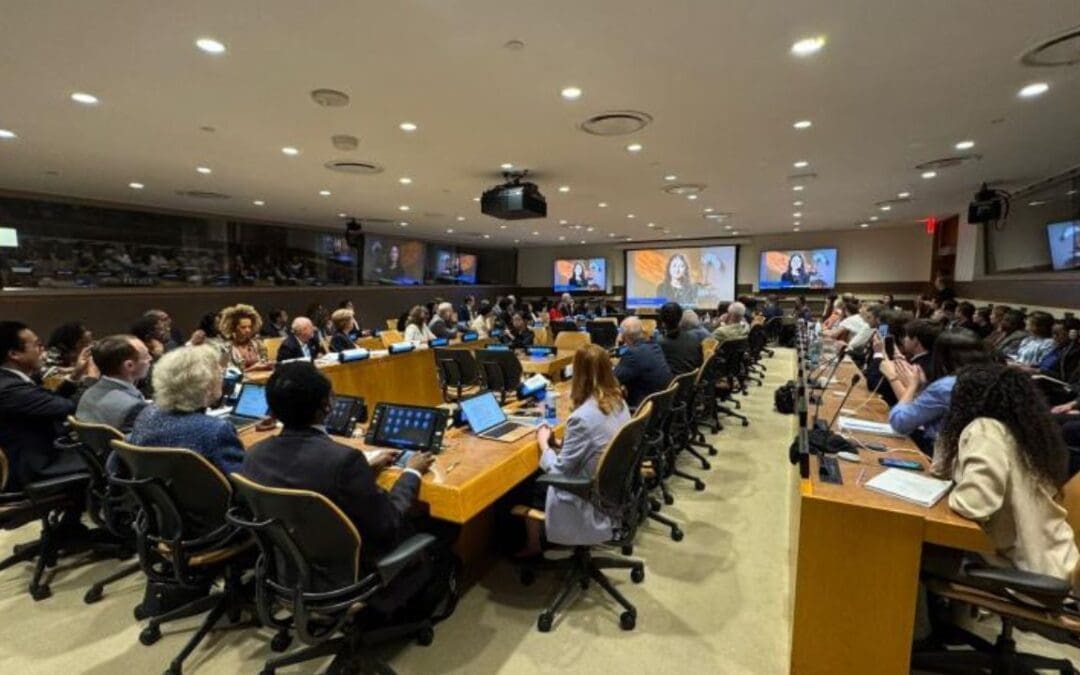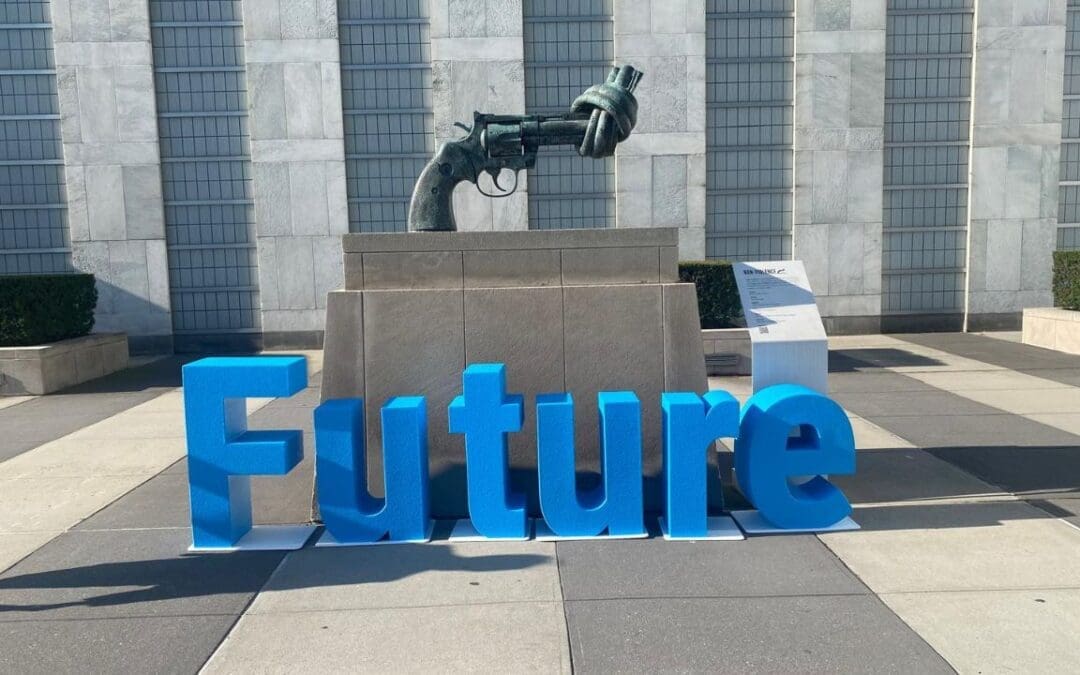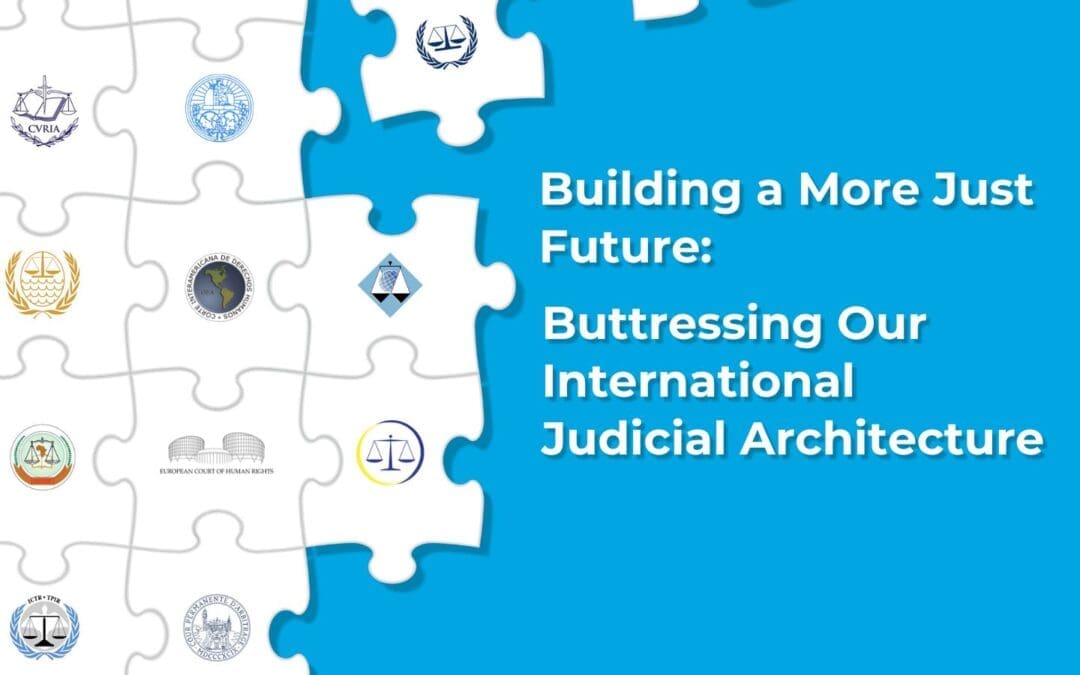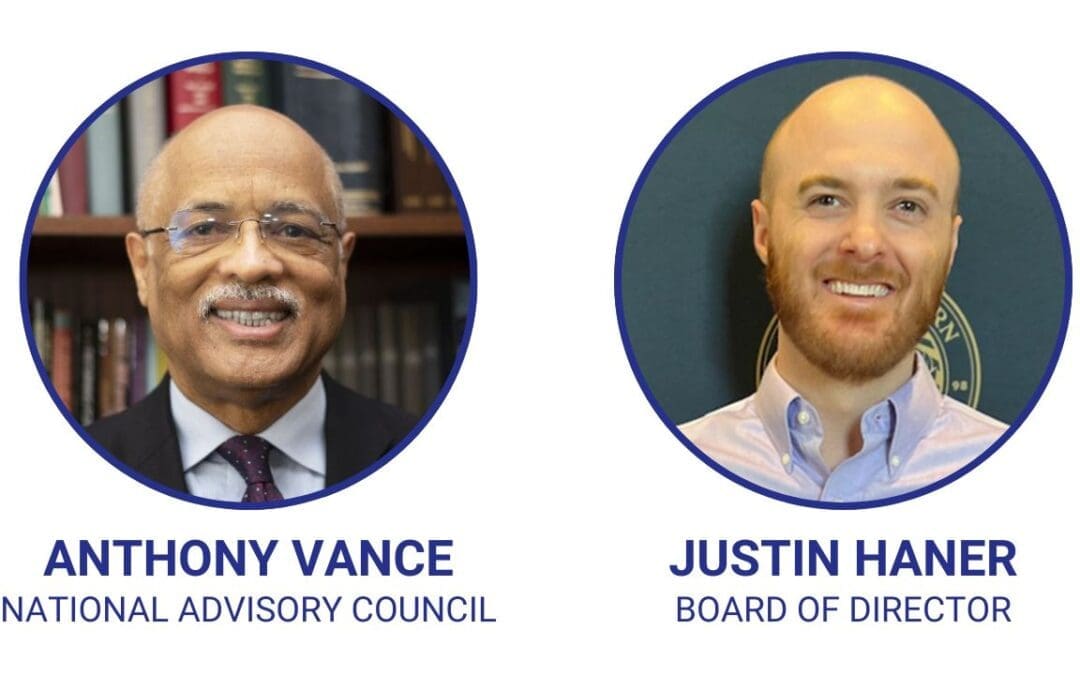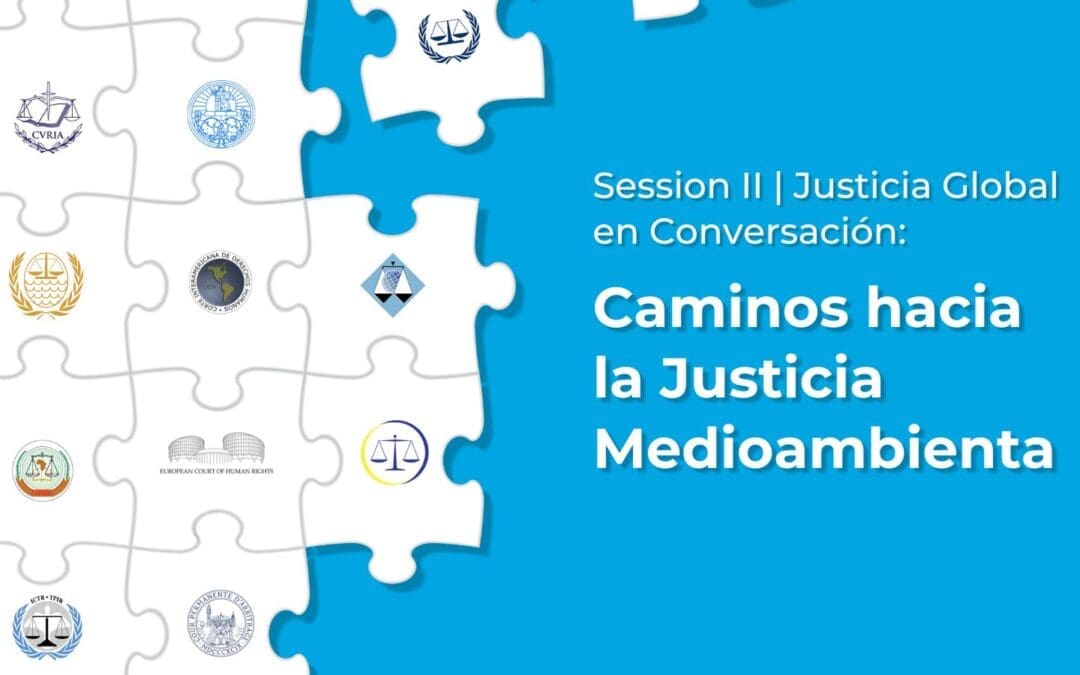
by CGS | Sep 22, 2024 | Past Event (External)
CGS co-sponsored this Side Event for the Summit of the Future Action Day hosted by the Baha’i International Community.
At moments of profound crisis, optimism is a precondition for success. This rapid-fire roundtable is a platform to energize participants to take the first next steps towards better global governance.
Representatives from Member States, the United Nations System, and Civil Society concurrently express hope and concern, encouragement and hesitation, optimism and doubt regarding the Summit and its outcome documents, including the Pact for the Future. Hundreds of recommendations have been directed toward the Pact and its related processes, representing significant consensus around the need for change. Yet, success will be measured by how this Summit is able to prevent and respond to complex and growing risks. The challenges are well-known, yet it is hope and a commitment to the wellbeing of humanity, ultimately, that will sustain our efforts. We need a shared, optimistic narrative, alongside a sophisticated understanding of the challenges we face, in order to overcome inaction. As was learned at the UN Civil Society Conference in Nairobi, this is a prerequisite on the path toward a future of peace and prosperity.
Far from an exercise in idealism, the aim of this event will be to highlight and connect common aspirations and concrete suggestions in order to catalyze future action beyond the Summit itself. This event, to be hosted during the Action Days of the Summit of the Future, will provide an opportunity for Member State representatives, UN officials, and Civil Society actors to contribute to a narrative built on evidentiary optimism. Representatives from various areas of the international system will share what it is from the Pact for the Future that brings them hope in the face of the very real challenges before us. They will offer their reflections and reasons for optimism, highlighting one or two actions that they think have particularly strong potential and proposing next steps to take that action forward.
Side Event organized by: United Nations Futures Lab, United Nations University Center for Policy Research, Permanent Mission of Chile to the UN, Permanent Mission of Vanuatu to the UN, Baha’i International Community, Buddhist Tzu Chi, Citizens for Global Solutions, Climate and Sustainability, Climate Governance Commission, Club de Madrid, Coalition for the UN We Need, Foundation for European Progressive Studies, Geledes, Global Governance Forum, Global Governance Innovation Network, GWL Voices, International Alliance of Women, International Environment Forum, Oxfam International, Pathfinders for Peaceful Just and Inclusive Societies, Plataforma CIPO, Project Starling, SDGs Kenya Forum, Stimson Center, World Federalist Movement

by CGS | Sep 21, 2024 | Past Event (External)
CGS co-sponsored this Side Event for the Summit of the Future Action Day hosted by the ImPACT Coalitions.
The UN’s Summit of the Future in New York adopted a PACT for the Future which includes a chapter on the transformation of global governance. This side event during the UN’s Action Days ahead of the Summit is a space to learn about and discuss proposals in this field put forward by a number of ImPACT Coalitions to build on the outcomes of the Summit and continue fulfilling a vision for renewed global governance in the coming years.
How to build on the seeds planted in the PACT to continue addressing the planetary emergency, inequitable distribution of power, lack of inclusion, continued violations of peace and disarmament goals, and gaps in accountability and the rule of law? Where is a need to go further? The event will addresses future pathways to bring about a more effective, accountable and inclusive global governance architecture.
Program outline
Introductory remarks
- Mark Malloch Brown, advisor, Bretton Woods at 80 initiative, former UN Deputy Secretary-General; former UK State Minister
Firestarters from ImPACT Coalitions featuring:*
- Global Citizens’ Assembly and a UN Parliamentary Assembly: Aishwarya Machani, Iswe Foundation;
- promoting international courts and tribunals for accountability under international law, Rebecca Shoot, Citizens for Global Solutions
- UN declaration of planetary emergency, Planetary Emergency Platform and the Creation of a Global Environment Agency, Maja Groff, Climate Governance Commission
- UN Charter review conference: Natalia Nahra, UN Charter Reform Coalition
Reactions
- Mary Robinson, Chair of The Elders, Lead Co-Chair of the Climate Governance Commission, and Former President of Ireland
- Meena Syed, Director for UN Policy, Norwegian Ministry of Foreign Affairs
Wrap-up and way forward
Moderated by Heba Aly
This Side Event was organized by: ImPACT Coalition on Inclusive Global Governance; UN Charter Reform Coalition; ImPACT Coalition on Just Institutions and the International Criminal Court; Earth Governance ImPACT Coalition; ImPACT Coalition on The International Anti-Corruption Court; Government of Norway; Coalition for the UN We Need; Global Governance Innovation Network.
- Global Citizens Assembly: Folly, Maiara, Aishwarya Machani, Andrea Ordóñez Llanos, and David Steven. 2024. Strengthening Citizen Participation in Global Governance. United Nations Foundation, Iswe Foundation, Plataforma CIPÓ, Blue Smoke, Southern Voice (download).
- UN Parliamentary Assembly: Brauer, Maja, and Andreas Bummel. 2020. A United Nations Parliamentary Assembly: A Policy Review of Democracy Without Borders. Berlin: Democracy Without Borders (download)
- a UN declaration of planetary emergency, Planetary Emergency Platform and the Creation of a Global Environment Agency, and other recommendations of the Climate Governance Commission; 2023 Report, Governing Our Planetary Emergency (download) and Tackling the Planetary Emergency: Supporting a Declaration of Planetary Emergency at the UN General Assembly and the Convening of a Planetary Emergency Platform (download), Published by MEGA on August 19, 2024
- Promoting international courts and tribunals: Legal Alternatives to War (LAW not War), a global campaign to increase the use and effectiveness of the International Court of Justice and to achieve universal acceptance of its jurisdiction.
- A UN Charter Review conference: Policy Brief from the UN Charter Reform Coalition

by CGS | Sep 20, 2024 | Past Event
A Side Event in conjunction with the UN Summit of the Future by the ImPACT Coalition for Just Institutions and the International Court of Justice, convened by Citizens for Global Solutions. International law is the foundation on which a renewed effective multilateral system should function. International courts and tribunals have never been busier. And yet, we all are profoundly aware that atrocities continue in nearly every region. The international adjudication system is a continuous evolutionary process. Genuine commitment to this process is critical to realize the aspirations of the UN system: foremost the peaceful and just resolution of conflicts and end to impunity for atrocities. This side event will begin with a recognition of the successes of international judicial institutions as indispensable elements of the global peace and security architecture. We welcome the commitment to comply with the decisions of the International Court of Justice (ICJ) and the inclusion of atrocity crimes, including the Crime of Aggression, as critical priorities included in the Pact for the Future. At the same time, this enterprise must entail a critical analysis of the shortcomings of the global judicial architecture and the need for continuous support to realize the ambitions of the UN Charter and the promise of “never again.”
An esteemed panel will consider the innovations and advancements of the International Criminal Court, the ICJ, and other courts and tribunals. An interactive dialogue will explore what should come next to achieve the full universality and effectiveness of these institutions, and to confront threats to their independence and integrity as indispensable elements of the global peace and justice architecture beyond the Summit of the Future.
Speakers
Jim Goldston, Executive Director, Open Society Justice Initiative
Jocelyn Getgen Kestenbaum, Professor of Law at the Benjamin N. Cardozo School of Law and Director of the Benjamin B. Ferencz Human Rights and Atrocity Prevention Clinic and the Cardozo Law Institute in Holocaust and Human Rights.
Matias Hellman, Acting Head of Outreach, International Criminal Court (ICC)
Akila Radhakrishnan, Senior Advisor, Atlantic Council, former Executive Director, Global Justice Center
Jennifer Trahan, Clinical Professor, NYU Center for Global Affairs, and Director of their concentration in Human Rights and International Law; Convenor of the Global Institute for the Prevention of Aggression
Rebecca A. Shoot, Executive Director, Citizens for Global Solutions

by CGS | Aug 27, 2024 | Press Release
Washington, DC– Citizens for Global Solutions (CGS) is honored to announce Anthony Vance, Senior Representative, U.S. Bahá’í Office of Public Affairs joins our National Advisory Council (NAC).
Anthony oversees the development of the Bahá’ís of the United States Office of Public Affairs programs and strategic direction. He joined the office in 2010 after spending four years at the Baháʼí World Center in Haifa, Israel representing it to the diplomatic community, civil society, and parts of the host government. A lawyer by training, he spent 21 years in the U.S. Agency for International Development in legal and managerial positions in Washington, Côte d’Ivoire Kenya, Botswana, and Egypt. Mr. Vance holds a B.A. in Economics, an MBA, and a J.D. from Harvard University.
Larry David, Member, Executive Committee, CGS Education Fund Board of Directors said of Vance’s appointment, “The Baha’is and Citizens for Global Solutions have long-shared common goals relating to the need to replace an international system that allows for war with one which does not. The organizations are naturally allied. Anthony Vance’s joining the CGS Advisory Council underscores that informal alliance. CGS is fortunate to have an individual of Anthony Vance’s position and training advising its board and is strengthened by his decision.”
Dr. Justin Haner, Member of the Board of Directors
It is with great pleasure that Larry David also welcomes Justin to the Education Fund Board of Directors. Larry states, “Dr. Haner brings an academic perspective, deep preparation, and a thorough understanding of the history and scope of international law, its applications, and its shortcomings. We fellow board members are honored by Justin Haner’s choice to give volunteer service to support CGS and its focus on international peace and justice.”
Justin is a political scientist and research fellow at the Watson Institute for International and Public Affairs at Brown University. From traditional security concerns to artificial intelligence and cybersecurity, his scholarship focuses on the transformative power that international law and organizations can have on solving complex global and regional security issues. Committed to ensuring his work resonates beyond the classroom, he campaigns on the dire need to reform the United Nations, including as a co-drafter of the People’s Pact for the Summit of the Future and an active contributor to the Coalition for the UN We Need. Justin is also a committed public servant with twelve years of combined experience in the military and local government. As a former Captain in the US Army Infantry, he led a mechanized rapid reaction force just south of the Korean DMZ and was selected to serve as Executive Officer to the United Nations Command Honor Guard. He currently serves as an elected Representative for Town Meeting and appointed Capital Budget Committee board member in Walpole, MA, where he works on a variety of local issues from promoting racial and gender inclusivity, to reducing his town’s environmental impact.
About Citizens for Global Solutions
Citizens for Global Solutions is a non-governmental, non-profit, non-partisan membership-based organization that for more than 75 years has brought together a diverse collective of individuals and organizations with a common goal of a unified world predicated upon peace, human rights, and the rule of law. From championing ratification of the UN Charter upon our establishment in 1947 to supporting creation of the International Criminal Court (ICC) 25 years ago to advocating for global instruments to confront today’s enduring challenges of war and climate degradation, CGS recognizes that true progress is a generational enterprise. We invite like-minded individuals and organizations to join us in this mission.
Contact: outreach@globalsolutions.org

by CGS | Aug 21, 2024 | Past Event
Hay un reconocimiento amplio que el mundo enfrenta un momento de crisis medioambiental profunda. Aun así, la naturaleza existencial de esta amenaza puede dar una impresión falsa de que actores responsables no puedan ser identificados o que estén más allá del alcance de la justicia global. Recientemente, hemos visto desarrollos prometedores en el intento para lograr la responsabilidad por daños atroces a la humanidad y al planeta. Este evento se llevará a cabo en español solamente.
